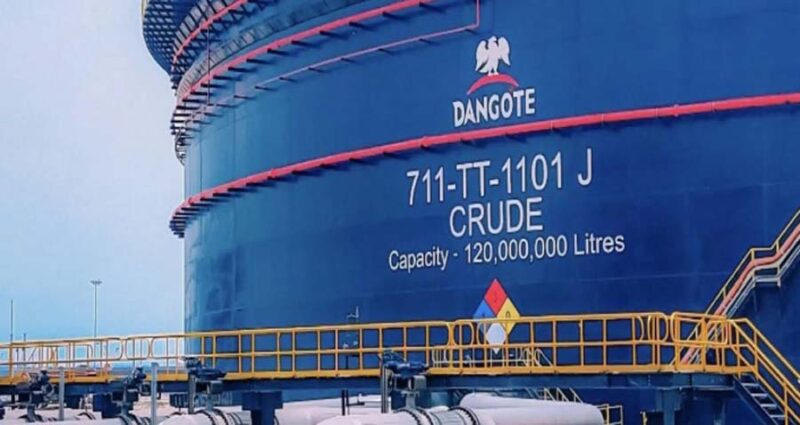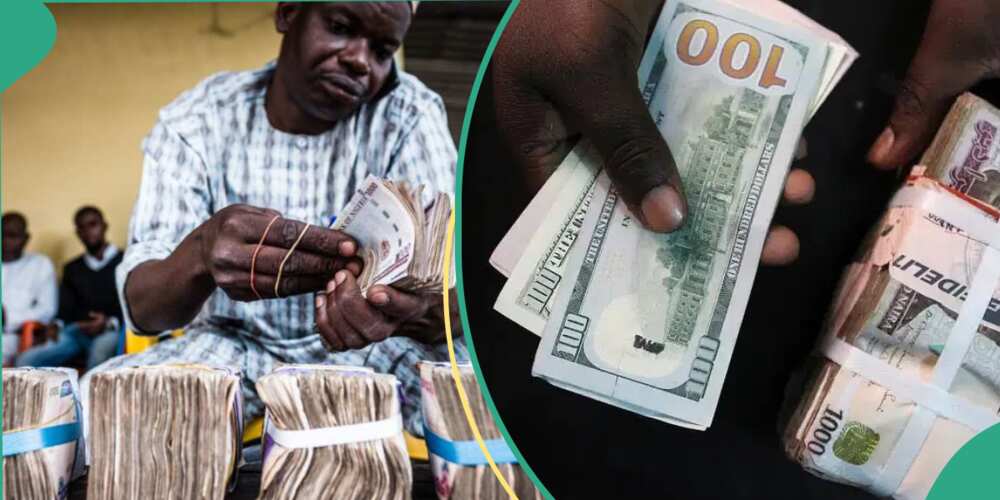Business
New agreements with IOCs will unlock opportunities in upstream sector, says Kyari

The Nigerian National Petroleum Company Limited has said the signing of the new Production Sharing Contracts (PSC) is a key milestone achievement which will unlock opportunities within the Nigeria upstream sector.
It noted that the execution of the PSCs would deepen investment and development of Nigeria’s rich petroleum resources and ensure that the trifold mandate of the NNPC Ltd to ensure energy availability, sustainability, and accessibility was achieved.
The Group Chief Executive Officer, NNPC, Mele Kyari stated this during the signing of agreements with international oil companies in Abuja on Friday.
In a bid to increase the production of crude oil in the country and increase revenue, the NNPC Ltd and international oil companies operating in Nigeria had signed various agreements.
The agreements would see the production of about 10 billion barrels of crude oil and generation of over $500bn revenue to all parties involved.
NNPC officials and their counterparts from the IOCs including Shell, Chevron, Texaco, Sinopec, Sapetro, Esso Exploration and Production Nigeria Limited, among others, renewed their agreements in five Oil Mining Leases that included OMLs 128, 130,132, 133, and 138.
The agreements renewed by the parties were Production Sharing Contracts, as well as Dispute Resolution Agreements, among others at a signing ceremony held at the Abuja headquarters of NNPC.
Speaking at the event, Kyari said: “The signing of the new PSCs is a key milestone achievement by NNPC Ltd which would ultimately unlock opportunities within the Nigeria upstream sector.
“The execution of the PSCs will deepen investment and development of Nigeria’s rich petroleum resources and ensure that the trifold mandate of the NNPC Ltd to ensure energy availability, sustainability, and accessibility is achieved.
READ ALSO:
- Atiku/Wike peace talks run into fresh hitch
- Female footballers, officials abducted, kidnappers demand N30m
- Kenya’s Presidential Race: Early Results Put Odinga Slightly Ahead
“Ultimately, the new PSCs will provide an inflow of Foreign Direct Investment, expanded access to affordable energy, job creation and socio-economic development.”
The NNPC Ltd chief explained that the Petroleum Industry Act 2021 gave NNPC the legal backing to renegotiate all its existing PSCs in conformance to the provisions of the new Act within a one-year period.
The PIA became law on August 16, 2021 after it was signed into law the same day by President Muhammadu Buhari.
The PIA in Section 311(2) stipulated that new PSC agreements under new Heads of Terms will be signed between NNPC Ltd as concessionaire and its contractor parties within one year of signing the PIA into law, giving a deadline of August 15, 2022.
The NNPC Ltd chief noted that this provision paved the way for the resolution of lingering disputes which created investment uncertainty and stifled new investments in the nation’s deep offshore assets.
According to him, the NNPC leveraged on the near end term of the PSCs and the parties’ interest to renew the PSCs as a negotiation currency in bringing the contractors to work towards trading the past for the future.
“These renewed PSCs would provide several benefits such as improved long-term relationships with contractors, elimination of contractual ambiguities especially in relation to gas terms, enable early contract renewal, among others,” he stated.
The Group General Manager, National Petroleum Investment Management Services, Bala Wunti, who spoke during the signing, said: “Cumulatively we hope to produce and monetise over 10 billion barrels of oil with these signatures that we had today.
“And this by no means will give significant revenue for all the parties. We expect over $500bn of revenue for all the stakeholders.”
The Nation
Business
Govt paying N600bn for fuel subsidy monthly — Rainoil CEO

Govt paying N600bn for fuel subsidy monthly — Rainoil CEO
The CEO of Rainoil Limited, Gabriel Ogbechie, has claimed that the federal government resumed the payment of the controversial fuel subsidy following the devaluation of the Naira in the foreign exchange market.
Ogbechie made this statement on Tuesday during the Stanbic IBTC Energy and Infrastructure Breakfast Session held in Lagos.
He pointed out that with Nigeria’s daily fuel usage at 40 million liters and the foreign exchange rate at N1,300, the government’s subsidy per liter of fuel falls between N400 and N500, culminating in a monthly total of approximately N600 billion.
He said; “When Mr. President came in May last year, one of the things he said was that Subsidy is gone. And truly, the subsidy was gone, because immediately the price of fuel moved from 200 to 500 per liter. At that point truly, subsidy was gone.
“During that period, Dollar was exchanging for N460, but a few weeks later, the government devalued the exchange rate. And Dollar moved to about N750. At that point, subsidy was beginning to come back.
READ ALSO:
- North Central Support Group rejects Northern Elders, pledges allegiance to Asiwaju
- Gunmen kidnap 2 FRSC officers along Abakaliki-Enugu highway
- Driver killed, 16 passengers abducted on Abuja-Lokoja road
“The moment the two markets officially closed, officially the market went to about N1,300. At that point, that conversation was out of the window. Subsidy was fully back on petrol. If you want to know where petrol should be, just look at where diesel is. Diesel is about N1,300 and petrol is still selling for N600.
Furthermore, he said that NNPC being the only petrol importer in the country implies that there is an ongoing subsidy, as prices had to be fixed.
Earlier yesterday, the former governor of Kaduna State, Nasir El Rufai, said the federal government is spending more on petrol subsidy than before.
In addition, the Special Adviser to the President on Energy, Mrs. Olu Veŕheijen, said that the Federal Government reserves the right to pay fuel subsidy intermittently to cushion hardship in the country.
“The subsidy was removed on May 29. However, the government has the prerogative to maintain price stability to address social unrest. They reserve the right to intervene.
“If the government feels that it cannot continue to allow prices to fluctuate due to high inflation and exchange rates, the government reserves the right to intervene intermittently and that does not negate the fact that subsidy has been removed,” she said.
Govt paying N600bn for fuel subsidy monthly — Rainoil CEO
Business
Breaking: Dangote brings diesel price down to N1000/litre

Breaking: Dangote brings diesel price down to N1000/litre
Dangote Petroleum Refinery has announced a further reduction in the price of diesel.
When it commenced operation a few weeks ago, Dangote Petroleum Refinery pegged the price of diesel as N1,200.
While rolling out the products, the refinery supplied at a substantially reduced price of N1,200 per litre three weeks ago, representing over 30 percent reduction from the previous market price of about N1,600 per litre.
READ ALSO:
- Kano anti-corruption agency slams fresh charges against Ganduje
- Troops kill ISWAP Commanders, 30 other terrorists
- Ooni of Ife dismisses agitators of Yoruba nation
However, on Tuesday, a further reduction of N200 was noticed in the price, with the product now pegged at N1,000.
This significant reduction in the price of diesel, at Dangote Petroleum Refinery, is expected to positively affect all the spheres of the economy and ultimately reduce the high inflation rate in the country.
The President of Dangote Group, Aliko Dangote, had during the Eid-el-Fitr celebration said if the cost price of diesel comes down, the inflation rate will be substantially reduced.
Dangote spoke when he visited President Bola Tinubu in his residence in Lagos State to celebrate the end of the Ramadan fast with him.
Breaking: Dangote brings diesel price down to N1000/litre
Business
Naira records five-month highest gain, sells below N1000/$ at parallel market

Naira records five-month highest gain, sells below N1000/$ at parallel market
The naira continued its positive showing against the United States dollar on Monday, selling below N1000/$ in some segments of the parallel market.
Newstrends reports that the Federal Government, groups and some individuals have mounted a spirited campaign for those hoarding the dollars to push them out as naira continues to appreciate.
On Monday, the naira was offered in some parts of Lagos and Abuja between N995 and N1,050 per dollar in the parallel market. It was N1,230/$ on Friday.
The latest gain, being over five-month highs, came in the wake of the Iranian attack on Israel and a rise in the crude oil price.
Goldman Sachs, American investment bank economists, had earlier predicted that the naira’s bullish momentum on the foreign exchange market would likely cause it to trade for less than N1,000 per US dollar in the coming months.
According to a report by Nairametrics, the group claimed that the rally in Nigerian currency helped recover from large losses after two devaluations since last June by being bolstered by capital inflows and successive interest rate hikes.
In March, Goldman Sachs projected that the Naira would appreciate to N1,200 per dollar in 2024.
At the official foreign exchange market, the rate was put at N1,136/$ in contrast with N1,205/$ last Friday.
The top bank has implemented several policy initiatives in recent months to bring stability to the foreign exchange market.
The CBN increased interest rates to 24.75% at the most recent meeting of the Monetary Policy Committee (MPC), which helped it recover losses from the two devaluations that occurred since June of last year.
Further gains for the naira result from the CBN’s ongoing intervention, which involves selling foreign exchange to Bureau De Change operators at a revised rate.
The market anticipates higher inflows of US dollars from the sale of foreign currency bonds in the second quarter as disclosed by Finance Minister Wale Edun.
The Federal Government has just offered high-yield short-term debt products at a premium to entice overseas capital into the economy.
The Middle East’s geopolitical unrest and
Notwithstanding a drop in Nigeria’s production volume, crude oil prices have risen beyond $90.
Nigerian grades of oil are trading at a premium to the ICE Brent benchmark.
The Middle East’s geopolitical unrest and the anticipation of an Iranian government strike on Israel caused oil prices to soar.
-

 metro7 days ago
metro7 days agoTroops arrest ISWAP commander involved in Army General, 3 soldiers’ killing in Borno
-

 News7 days ago
News7 days agoBREAKING: Ex-Abia gov, Ogbonnaya Onu, is dead
-

 Sports6 days ago
Sports6 days agoKane’s three children involved in car crash, hospitalised
-

 metro5 days ago
metro5 days agoTroops neutralise 188 terrorists, rescue 133 hostages in assault operations
-

 News5 days ago
News5 days agoFG gives update on where fleeing Binance executive is hiding
-

 News7 days ago
News7 days agoEdo APC chairman visits Shaibu after impeachment
-

 Entertainment5 days ago
Entertainment5 days agoTolani Baj expresses love for Bobrisky
-

 Business5 days ago
Business5 days agoNaira continues gain, sold N1,150/$ at parallel market






















